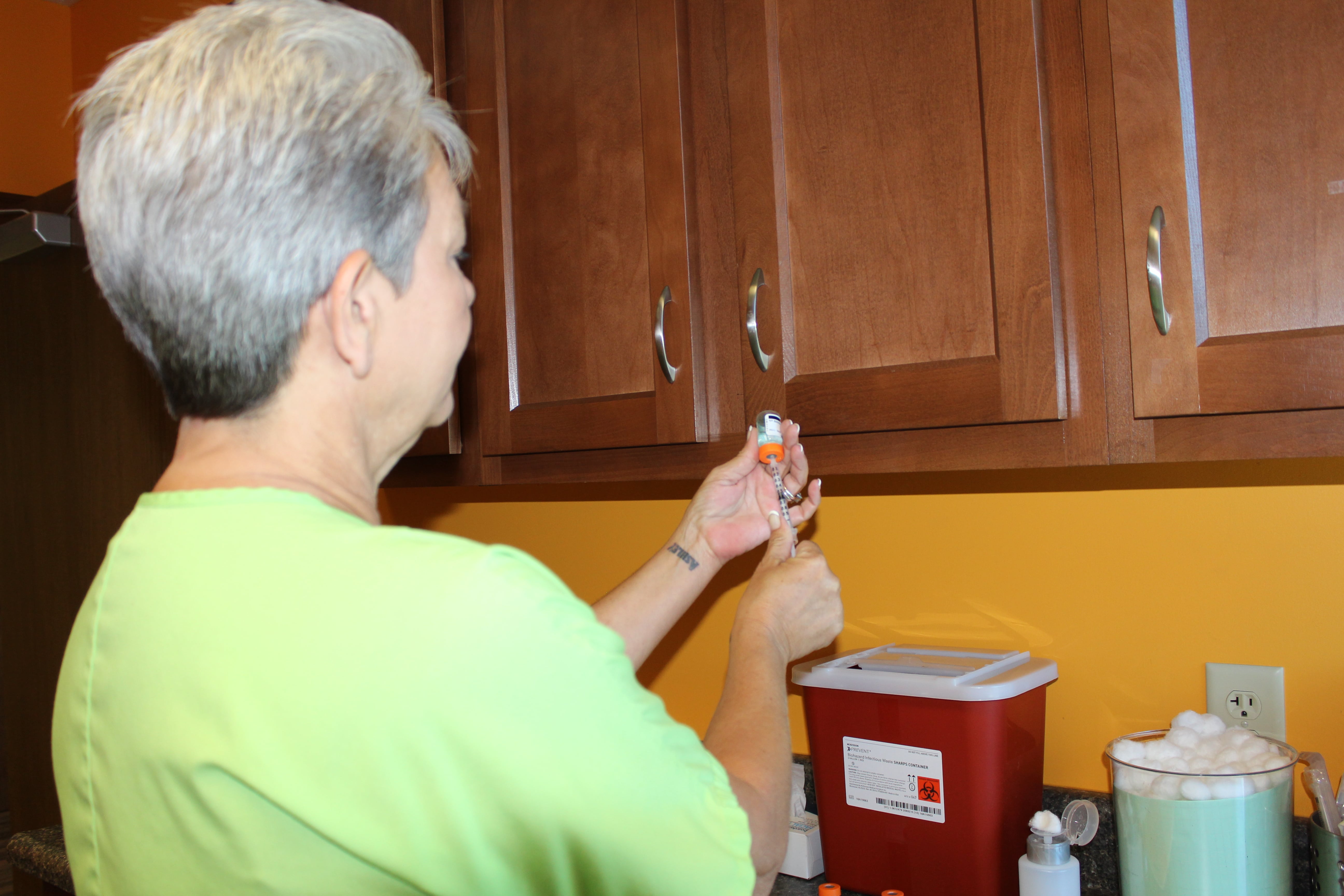Allergy Shots: Could They Help Your Allergies?

Written by Dana Dalbak, PA-C
Curious about allergy shots? Here are some frequently asked questions about allergy shots
and some ways they could benefit you…
What are allergy shots?
Allergy shots, also called allergen immunotherapy, is a form of long-term therapy to relieve allergy symptoms. Allergy shots contain tiny amounts of the specific substances that trigger your symptoms, known as an allergen. The shots contain just enough of the allergen to stimulate the immune system. Over time, the dose of the allergen in the shot is increased; this enables your body to become used to the allergen and is known as desensitization. Your immune system can the build up a tolerance to the allergen, resulting in decreased overall allergy symptoms.
Who can benefit from allergy shots?
Allergy shots are effective in the treatment of allergic rhinitis (hay fever), allergic conjunctivitis (eye allergies), allergic asthma (asthma triggered by allergies), and stinging insect allergies. In children, allergy shots can prevent the progression of allergic diseases from hay fever to asthma. Individuals with frequent sinus infections that are triggered by allergens also show improvement with allergy shots. Immunotherapy is can also effective for some individuals who have atopic dermatitis (eczema).
An allergist (a doctor that treats allergies) can determine which patients are most likely to benefit from allergy shots by evaluating a patient’s symptoms and doing allergy skin testing in the office. This test will determine the specific type of allergies the patient has.
Who should start allergy shots?
A decision to start allergy shots may be based on several factors:
-Severity of symptoms
-Inadequate control of symptoms with medication
-A desire to avoid or decrease education
-Length of allergy season
-Concurrent medical conditions
What allergens are treated with allergy shots?
Common allergens that can be addressed with shots include pollen (tree, weed, grass, and farm pollens), mold, dust mites, and pet dander. Food allergies are unfortunately not treated with shots; the best choice for an individual with a food allergy is to strictly avoid contact with the offending food.
How often do I get allergy shots?
During the build-up phase, allergy shots are typically given two to three times every week. The amount of the allergen is gradually increased over time, allowing the body to become desensitized to the allergen. The build-up phase usually lasts at least six months, depending on how often the patient comes in for their shots.
After the build-up phase, the patient then begins the maintenance phase. During this phase, shots are gradually spaced out until the patient reaches an interval of just one shot per month. Once this maintenance interval is reached, shots are usually continued for three to five years. Some patients will notice improvement during the build-up phase, others may need to be on immunotherapy for a full year before symptoms noticeably improve.
Where are shots administered?
Immunotherapy is usually administered in the allergist’s office. Every state has their own laws, but in Illinois, they must be administered in a licensed, medical office. However, for patients whom distance or scheduling is a problem, the shot serum may be sent to a physicians’s office that is closer to the patient in order to be administered there. This physician should have the necessary supplies and licensure to administer and treat a reaction to the shot, in the unlikely event this occurs.
Are there risks?
A typical reaction to a shot includes a slight itch, some redness, and swelling at the site of the injection. More serious reactions to shots, such as anaphylaxis, are rare, but they can occur. For this reason, patients must wait the the physician’s office for thirty minutes after each injection. Patients are also instructed in the self-treatment of reactions should this occur after leaving the office.
How do I know if shots are right for me?
A visit to an allergist for the evaluation of your symptoms and possible skin testing can determine if you are likely to benefit from immunotherapy. A referral from your primary physician is not necessary unless it is required by your insurance.

Dana Dalbak, PA-C
Dana Dalbak, PA-C, is a certified Physician Assistant, graduating with a Master’s Degree from Central Michigan University. After placing in the tenth percentile on the National Physician Assistant Certification Exam, she traveled to Gambia, West Africa to complete the rest of her training. Upon practicing family medicine for five years in an underserved part of Michigan, where she has worked with Dr. Siri in Allergy and Asthma specialty care since 2007. She has been a wonderful part of the MASA family since its establishment in 2013.
View Dana’s full biography here.


